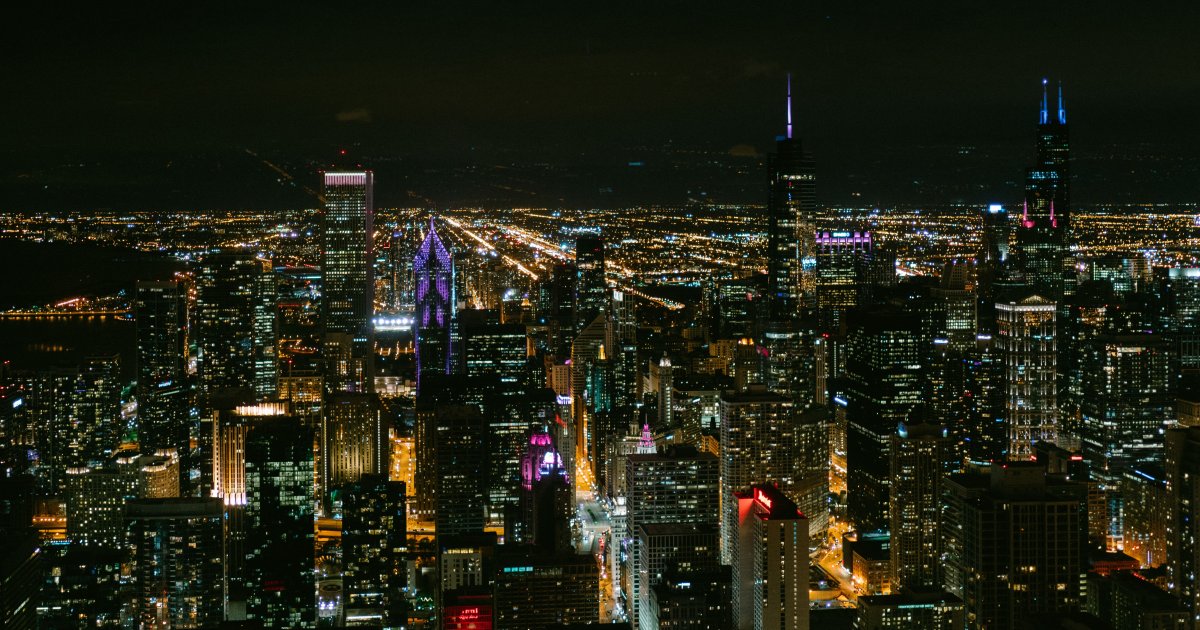Study Doesn't Prove Link Between Nighttime Light and Thyroid Cancer Risk
- A new study claims heavy nighttime light exposure raises thyroid cancer risk by 55 percent.
- The study’s data collection method was not precise enough to draw this conclusion, say experts.
- “It’s an interesting idea but without the actual melatonin levels measured, I have a hard time believing there is a causal relationship between these two things,” says a leading thyroid cancer specialist.
- While there’s no definitive link between nighttime light and cancer risk, sufficient sleep is crucial to your health.
Related: 7 Common Signs of Thyroid Cancer & How to Spot Them
Read MoreWhat the Study Found
Researchers kept track of 464,371 adults spread across the U.S. to see if there was any link between nighttime light exposure and thyroid cancer rates. They used satellite images to get an estimate of each person's nighttime light exposure. Think: Pictures of Times Square taken from space compared to pictures of a rural countryside taken from space. The researchers then assigned the study participants to one of five tiers based on estimated nighttime light exposure. That is, people with addresses in rural areas were put in the bottom tier. Residents of brightly lit cities were put in the top.What they found was that thyroid cancer rates were 55 percent higher in the brightest tier than in the darkest one.
But, this means of data collection isn't nearly precise enough to point a finger at streetlights as a cause of thyroid cancer, Lorch says.
"The estimation of light exposure was based on satellite imagery, but if your bedroom faces away from the streetlight, it doesn't matter how your town looks from space," he says.
Related: Sofia Vergara, of Modern Family and America’s Got Talent, Beat Thyroid Cancer at 28
The study didn't measure nighttime light inside the homes of people with cancer. Nor did it take into consideration other environmental exposures, such as smog, that might also be prevalent in brightly lit cities.
Shedding a Little Light on Streetlights
The idea that nighttime light exposure might play some part in cancer risk isn't unheard of. Darkness triggers your brain to produce the hormone melatonin, which helps regulate your sleep. Too many hours of light exposure each day can deplete your melatonin levels and interfere with sleep. It's no secret that poor sleep and chronic sleep deprivation can raise your risk for all kinds of health problems.
Related: Does Sleep Apnea Cause Cancer? New Evidence Suggests Women Could Be at More Risk
Recent studies have explored a possible link between low levels of melatonin and breast cancer risk. The idea is that melatonin can act as a tumor suppressor in estrogen-receptor positive cancers.
Too much nighttime light exposure can put a dent in melatonin levels. But this study doesn't go so far as to check the hormone levels in the people who had thyroid cancer. It uses nighttime light exposure as a proxy for that.
Related: Biggest Loser‘s Erica Lugo Shares Powerful Photos of Thyroid Cancer Surgery
"If they were able to show that melatonin levels were associated with higher risk for cancer," Lorch says, "it would be a totally different story."
The Take-Home Message: Sleep is Key
A streetlight outside your window probably doesn't have any direct impact on your risk of thyroid, or any other, cancer.
"But we should be careful about our sleep environment," Lorch says. "Sleep is important for our health and controls all kinds of processes in the body, including the immune system, hormone balance and so on, but a light source in your city is probably not a strong predictor of cancer risk."
If lights outside your window are keeping you up at night, do something about it. Curtains or a sleep mask will do the trick. No need to call a moving truck.
Learn more about SurvivorNet's rigorous medical review process.


